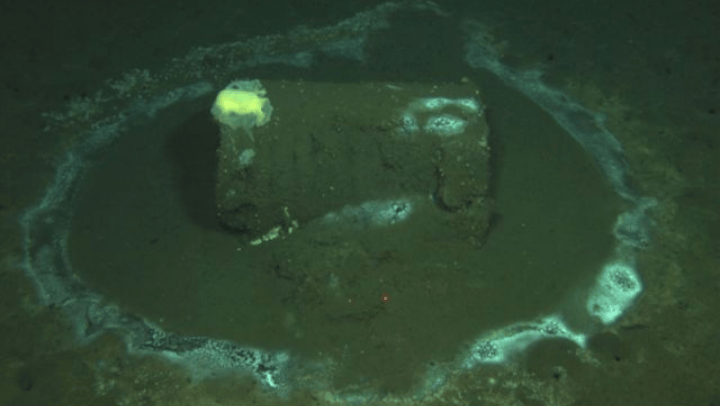SDSU Opens Mesoamerican Center in Oaxaca
New center and accompanying conference set the stage for growth of binational research.

More than two dozen San Diego State University educators and administrators, accompanied by state lawmakers, traveled to Oaxaca, Mexico in May for the grand opening of the university’s new Mesoamerican studies center. The ribbon-cutting was followed by a two-day conference discussing binational collaboration in research.
SDSU President Adela de la Torre led the SDSU contingent, which was joined by a similar group of dignitaries representing government and education institutions in Mexico. De la Torre is familiar with the region, having lived and worked in Oaxaca in some capacity for more than 15 years.
“It has an incredibly special place in my heart,” de la Torre wrote in an introductory statement for the program outlining the conference agenda for “The Bonds of Oaxacalifornia: Creating Binational Collaborations.” She noted that Oaxaca is a state rich in history and is home to the highest percentage of native and Indigenous language speakers in Mexico.
Similarly, her message stated that San Diego County is home to the largest number of native and Indigenous tribes in the United States, and California has the country’s largest concentration of Indigenous Mesoamerican communities. Such conferences, along with the establishment of the SDSU Center for Mesoamerican Studies, the president said, will encourage transborder diplomacy, cross-disciplinary relationships and binational cooperation.
“We will celebrate our shared stories, knowledge, research, and experiences, and chart a course for deliberate action,” she said.
Among those attending the grand opening and the conference were SDSU Alumni Board of Advisors President Charlotte Ochiqui Hans (’00); California State Senator Ben Hueso, who represents Imperial County and the border region of San Diego County; and Assemblymember Jose Medina, who represents the 61st District (Riverside County) and is chair of the Committee on Higher Education and a member of the California Latino Legislative Caucus.
'Who we are'
SDSU has more than two dozen faculty who regularly conduct research in Oaxaca. Among them is Anthropology Professor Ramona Pérez (’92), Ph.D., the director of SDSU’s Center for Latin American Studies who serves as Aztec Identity Initiative director and is president of the American Anthropological Association.
Pérez’s research focuses on health among marginalized populations; identity and empowerment among transnational, Mexican and Central American migrant youth; rural-to-urban community growth; and the gendered and moral nature of community economies in Mexico. She has spent more than 25 years developing connections and collaborations in Oaxaca through her work.
Formally connecting SDSU to scholars and research institutions in Oaxaca through the conference and the new center was a logical next step for the university, the professor said. She believes developing and maintaining such partnerships will generate lasting benefits for all involved.
“In many ways, we are setting a precedent for how U.S. universities should collaborate and share knowledge and resources,” Pérez said. “We want their students to be as active as our students in the research dynamic so that in subsequent generations it is a natural relationship between San Diego State and Oaxaca.”
The result, Pérez believes, will help to greater define SDSU. “We are committed, not just to talking about global problems, but collaborating in the solution of global problems with the people on the ground in those communities.
“We are not doing this part-time. This is where we are going, this is our philosophy, this is who we are.”
Collaboration in action
The new center, the conference, and ongoing binational research projects involving SDSU and institutions in Mexico are expected to boost the university’s goal of achieving R1 status as a top-tier research institution. The many opportunities provided for SDSU students and faculty through the collaboration should advance SDSU’s standing as a premier Hispanic-Serving Institution among leading HSIs in the U.S.
SDSU Professor of Psychology, Associate Chief Diversity Officer for HSI and Regional Affairs Emilio Ulloa (’97), Ph.D., served as a facilitator at the conference. He said a primary objective of the event was to get attendees from both sides of the border to describe their work, their skills, and the types of questions they seek to answer through their research.
“We had public health people, epidemiologists, chemists, biologists, anthropologists, psychologists, and as people spoke, an area or problem would emerge and they could all see ways to contribute or chip away at the larger research problem,” Ulloa said. “As people were listening to one another, ideas for projects began to surface.”
One upshot from the inaugural event: participants were asked to jointly write research proposals to be submitted to SDSU’s Division of Research and Innovation for review early in the coming academic year. The top three will receive seed funding.
“A specific pathway has been created as an outcome for these talks and we will see how it pans out,” Ulloa said. “It’s quite rewarding to be somebody whose role was to help facilitate those conversations.”



